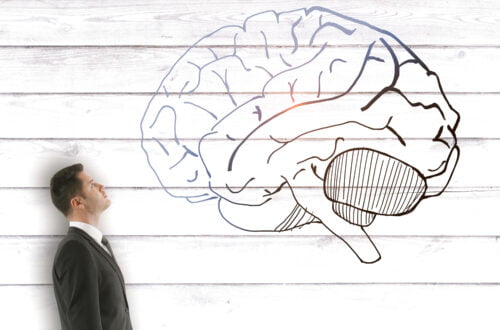Depression Without Suicidal Thoughts
Depression Without Suicidal Thoughts? Is it really possible? Believe it or not, yes – depression can occur without the presence of suicidal thoughts. While someone experiencing depression can have suicidal thoughts, they are not always necessary for a diagnosis. It may seem counterintuitive to think that depression exists without an individual wanting to take their own life, but the truth is, there’s no one-size-fits-all approach when it comes to mental health symptoms. Depression can manifest itself in many different ways and even those who don’t experience suicidal ideation may still feel overwhelmed with sadness, guilt, and hopelessness. If you’re feeling down but aren’t having any thoughts of suicide or self-harm, know that you are not alone — there are resources out there for people struggling with their mental health regardless of the severity of their experiences.

Depression Overview
Depression without suicidal thoughts is often overlooked, but it’s a real issue that affects millions of people. It can be difficult to recognize and manage, especially if you’re one of the many who think that depression only looks one way. The truth is depression can manifest in various forms and levels of severity—some more visible than others.
That’s why it’s important to understand what depression without suicidal thoughts looks like, along with the warning signs you should look out for and how to address this mental health condition. After all, knowledge is power! A firm grasp on what depression can do will help you take proactive steps to care for yourself or a loved one who might be struggling with symptoms.
Depression Without Suicidal Thoughts
Signs and Symptoms
Depression can be a serious and debilitating condition, but it’s not always easy to identify — even in ourselves. However, if you know what signs to look for, spotting the first symptoms of depression can help get you on the path to recovery sooner rather than later.
Common signs and symptoms of depression include lack of motivation or interest in activities that were once enjoyable; fatigue; irritability; change in appetite or weight; difficulty sleeping (or oversleeping); feelings of guilt or worthlessness; difficulty concentrating; and feeling isolated from others. Depression can also cause physical symptoms such as headaches, back pain, and digestive problems. What’s more, depression can change your behavior in ways that affect your relationships with others. When someone you know exhibits any of these behaviors, it’s important to take them seriously and reach out for help.
Causes of Depression
Depression without suicidal thoughts is an invisible kind of depression, yet it affects one in seven adults at some point in their lives. It can be difficult to recognize and even more challenging to deal with – but understanding the causes can be a big step towards managing it.
The most common causes of depression without suicidal thoughts include grief, stress, financial hardship, relationship problems or major life changes such as moving house or starting a new job. Even negative thought patterns can lead to depressive feelings over time, as those affected focus on failures or shortcomings rather than successes.
Social media has also been linked to depression without suicidal thoughts due to the culture of comparison it fosters; making people feel inadequate when comparing themselves to others and leading them down a path of self-loathing and negativity.
Coping Strategies
Coping with depression can be challenging, especially for teenagers who may feel overwhelmed or isolated by their emotions. While counseling for teen depression is often recommended as an effective treatment, there are also coping strategies that can be incorporated into one’s daily life to manage and alleviate symptoms. One such strategy is engaging in regular physical exercise. Exercise not only increases endorphin levels in the brain but also provides a healthy outlet for stress and helps improve overall mood.
Another effective coping strategy involves cultivating a support system. This can involve opening up to trusted friends or family members about what you’re going through and seeking their guidance and understanding. It’s important to remember that you don’t have to face depression alone and that seeking support is not a sign of weakness, but rather a crucial step towards healing. Additionally, finding creative outlets, such as journaling or art therapy, can provide a means of self-expression and serve as valuable tools for self-reflection and emotional release.
Implementing these coping strategies alongside professional counseling can significantly improve one’s ability to manage teenage depression effectively. By incorporating regular exercise into your routine, seeking support from loved ones, and expressing yourself creatively, you open the doors to new perspectives on how to conquer the challenges brought by depression. Remember that everyone’s journey is unique; finding what works best for you might take time and patience—so be kind to yourself along the way!
Overcoming Challenges of Depression Without Suicidal Thoughts
In life, it’s inevitable that we will face challenges. Whether they be big or small, we all have to tackle them at some point. But when depression enters the mix, it can make it extremely difficult to see a way forward. That doesn’t mean it’s impossible though! With the right guidance and support systems in place, anyone can take control of their mental health and start overcoming their struggles. It may feel like an uphill battle at times but if you look closely enough there are tools available to help you on your journey that don’t involve medications or drastic measures.
It won’t be easy, but together let’s fight for a world where facing life’s challenges isn’t so hard!
Final Thoughts: Finding Help & Hope for Depression Without Suicidal Thoughts
It’s the end of the road. As we reach this final point, it is important to reflect on everything that has been said about depression without suicidal thoughts. Throughout our journey, we have discussed the many symptoms associated with this condition and explored some of the ways in which individuals can manage them.
Now, it’s time for a few parting words. First off, it is essential to remember that depression without suicidal thoughts does not always manifest itself in obvious ways; there are often subtle signs and feelings that can be overlooked or misinterpreted if you’re not paying attention. Secondly, don’t be afraid to reach out for help if you think you might be struggling with such a condition—no matter how small your concerns may seem. Lastly, understanding and acknowledging one’s mental health state is key to helping oneself move forward in life.






